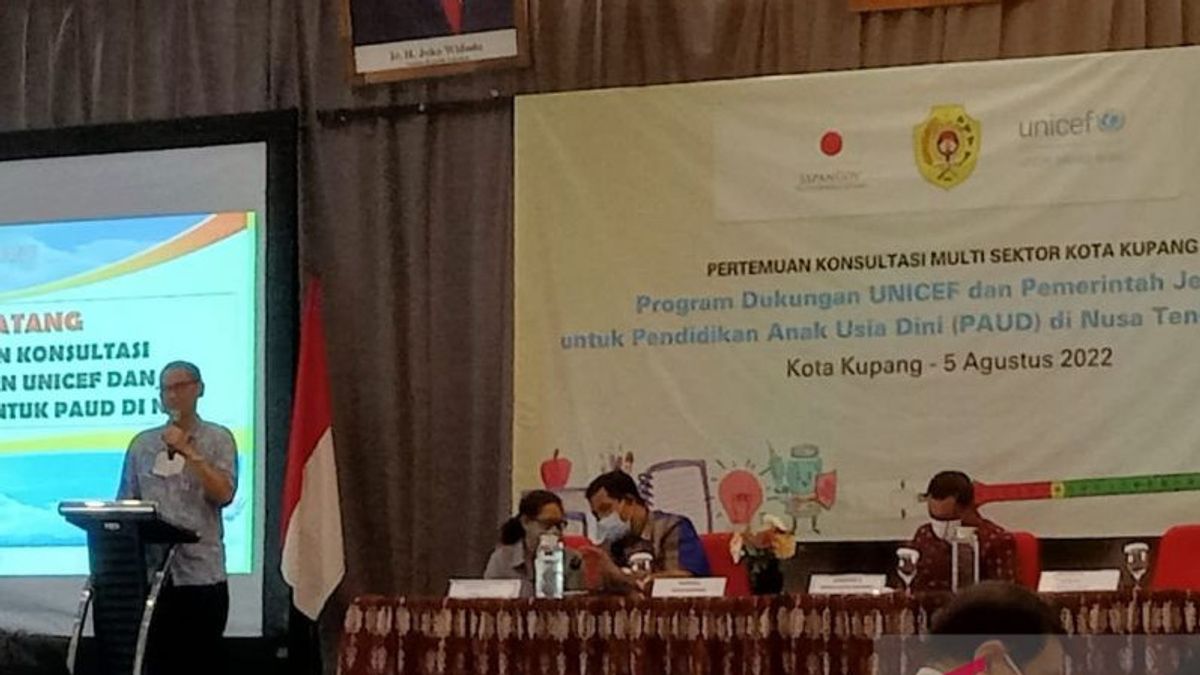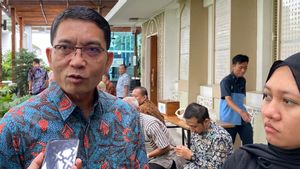KUPANG - Head of the UNICEF Representative Office for the Provinces of East Nusa Tenggara and West Nusa Tenggara, Yudistira Y Wangoe, said that the COVID-19 pandemic that lasted for two years had not only impacted the development of the health sector but also affected the growth process of early childhood.
This was conveyed by Yudistira in a multi-sector consultation on support from Unicef and the Japanese government for the PAUD program in Kupang City today.
There are several aspects that affect children's growth during the COVID-19 pandemic, namely children's opportunities to learn, limited access to health services such as visiting posyandu and getting complete immunizations, as well as getting access to clean water and hygiene services and access to nutrition services.
"Unicef as a United Nations agency that protects children's rights has a very serious concern in the problems faced by children in the regions. Together with the Indonesian government, Unicef wants to improve children's access, especially children at the age of early childhood development," said Yudistira in Kupang quoted from Antara, Friday, August 5.
According to him, early childhood development is an effective entry point for early childhood development from various aspects. He explained that in addition to inadequate nutritional intake and unbalanced weight and height, children are categorized as stunted children.
"The cognitive abilities of children with stunting become inadequate in absorbing knowledge when they grow into adults. Efforts need to be made to prevent stunting and Kupang City is one of the areas that is very active in efforts to overcome child stunting," said Yudistira Y Wangoe.
He emphasized that one of the things that needs to be done at this time is how to help children who are currently growing up in conditions with stunts in improving their thinking skills.
"The role of early childhood education institutions (PAUD) is very much needed to help children who grow up in stunted conditions so that they can help restore the thinking skills of children who suffer from stunting," said Yudistira Y Wagoe.
He added that it has been proven that in children who experience stunting when attending early childhood education, 80 percent of the children's cognitive abilities become more adequate.
"We continue to encourage holistic and integrative early childhood education so that all sectors are actively involved in supporting the existence of early childhood education in NTT," he said.
The English, Chinese, Japanese, Arabic, and French versions are automatically generated by the AI. So there may still be inaccuracies in translating, please always see Indonesian as our main language. (system supported by DigitalSiber.id)













